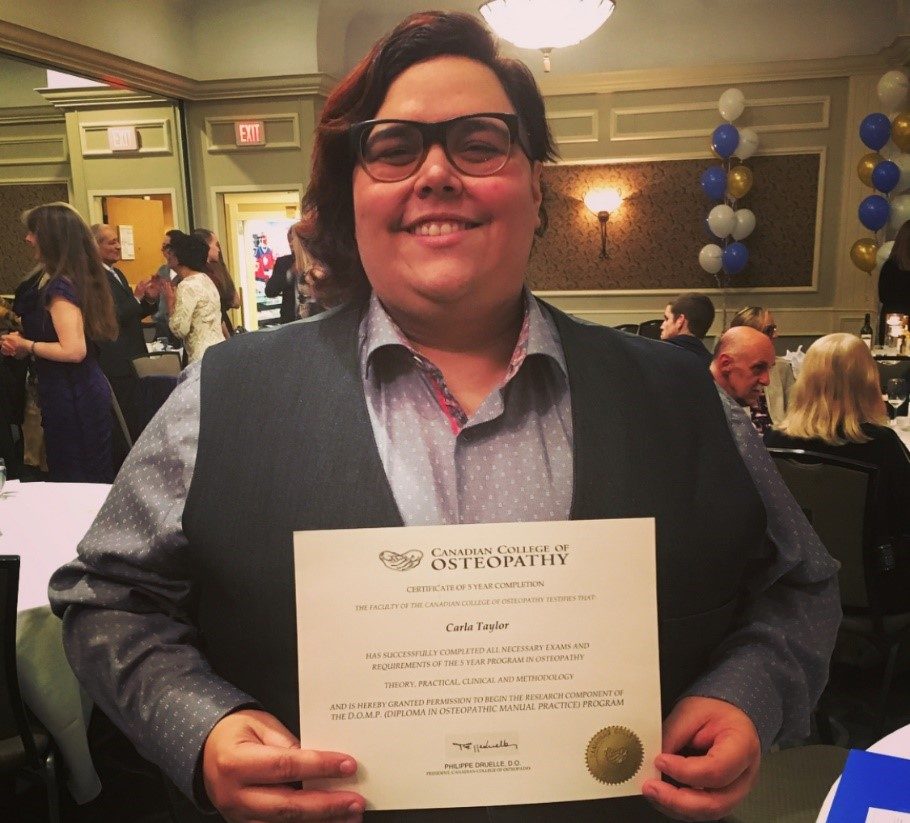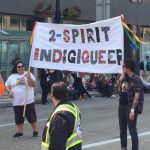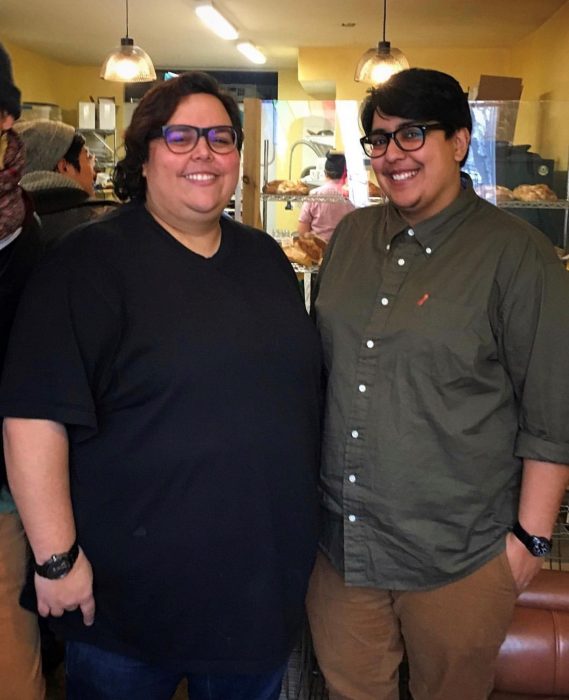
Carla Taylor holds their certificate from the Canadian College of Osteopathy.
Indigenous Homecoming celebrates alumni achievements through a living library
Indigenous Homecoming is a celebration of U of M Indigenous alumni and their accomplishments. This year, Indigenous Engagement invites you to join us for a Living Library, where you will have the opportunity to hear the stories of influential alumni who are making a difference in our communities. Our honoured guests – or living books—include Carla Taylor [BESS/03], Hañwakañ Blaikie Whitecloud [BC (Hons)/11], Dené Beaudry [BA/14], Monica Cyr [BSc/15; MSc/18] and Jackie Traverse (BFA/09].
UM Today spoke with alumna Carla Taylor (she/they) to get a sneak peek into what they have been up to and how they are making a difference in the community. Taylor is from Selkirk, MB, with ties to Fisher River First Nation. They run their own wellness centre and is an active member of the Two Spirit community.
UM Today: Tell us about the path that led you to post-secondary education, and in particular athletic therapy.
Carla Taylor: I was always interested in post-secondary education. It was something we talked about when I was small, and it didn’t necessarily matter what that education was. My interest leaned toward athletic therapy because of the injuries I sustained playing sports. First, I enrolled in Physical Education. Then, the Athletic Therapy program was created, and I transferred over.
In my youth, I primarily played softball, hockey and basketball. I sustained a lot of injuries when I was younger. I was always active and that was where all my injuries come from (laughs).
UM Today: What kind of job or plan did you envision at the beginning of your educational journey, and did it meet expectations?
CT: At that time, I was working as a student with a physiotherapist and I was interested in taking on that work after graduating. You have options to work with professional sports teams, or in major games like the Olympics or privately in a clinical setting. I was drawn to the clinical setting, and that’s what I’ve done since graduating. Private practice is never boring. It is something I can envision doing for the rest of my career.
The only thing I could potentially see adding in is teaching on a part-time basis.
UM Today: Tell us about the Revolution Wellness Centre.

Carla Taylor and Monique LaPlante in Pride Parade (Rainbow Warriors)
CT: I started the Revolution Wellness Centre nearly seven years ago. I realized that when I was renting from other practitioners, my network was growing. I wanted to be able to offer safer spaces to Indigenous folks — POC [people of colour] and the LGBT [lesbian, gay, bisexual and trans] community in particular. There is a lot of bias and discrimination within these communities, and we really want to go out of our way to make services as accessible and safe as possible. Everyone is welcome to the space.
We offer services from practitioners who were interested in their own professional development. It started with just an office manager and myself, and we have since grown the centre from there. We now have two massage therapists, a psychic medium and even a hairdresser.
Our services really cover the whole spectrum of life, including end-of-life care. When we were opening the clinic, one of the drummers at our pipe ceremony said having a hairdresser on our team would tie into our wellness because hair care is a traditional aspect we need to pay attention to.
UM Today: Describe how your work in athletic therapy intersects with your passion and contributions to the Two Spirit community.
Our centre hosts meetings for Rainbow Warriors as well as the 2Spirit PowWow Winnipeg planning committee so we can engage in community. Our clientele overlaps with these groups. Our staff is involved in community in this way, too.
Rainbow Warriors was founded by Monique LaPlante, myself and a few other Two Spirit community members. It was created to offer programming to reconnect to culture in spaces that include Two Spirit Elders and Knowledge Keepers. There are Two Spirit people who grew up without culture, and at times, cultural settings were not open to them. It was important for us to be inclusive of the different people who would be attending. We have sharing circles, craft nights, social evenings, sweat lodges, and have helped organize and attend the Regional Two Spirit Gathering. We try and coordinate with Two Spirited People of Manitoba Inc., and connect people to the different events going on the city.
The 2Spirit PowWow Winnipeg celebrated its third year this past summer, and it was the first time I was on the committee. We helped to organize and run the powwow, which has a lot of people working behind it so it kind of runs itself. We were trying to bring in more access to resources and use our connections and networks to bring in more donations. We carry on all of the work that has already been started by the past members of the committee.

2SQTBIPOC library founders Carla Taylor and Renu Shon
UM Today: Tell us about the 2SQTBIPOC [Two Spirit, Queer, Trans, Black and Indigenous People of Colour] library.
CT: My friend, Renu Shonek, approached me about hosting the library that they had been envisioning for years. I offered the space in our basement, and since then, we have been holding fundraisers, such as drag shows at Club 200.
The library is looking forward to an upcoming event with Sarah Ahmed (an author who coined the term the ‘feminist killjoy’) called Closing the Door: Complaint as Diversity Work on Oct. 2. We will be speaking about the library and provide an opportunity for folks to volunteer. We will also be accepting monetary and book donations.
We’re non-institutional and non-academic— it’s a community space. We do not accept formal funding. The library will give access to information to folks who may not have access outside of academia.
UM Today: Do you have advice for Indigenous youth looking to navigate post-secondary?
CT: I didn’t really have connections to community when I started university. If students are at all connected to community now, it is important to take advantage of that, be it through university supports, their home nation and connecting with community organizations. The internet is a great way to help us connect and remind us that we have community both inside and outside of university.
Hear more about Taylor’s journey, as well as those of other alumni, on Wednesday, Sept. 18 at Migizii Agamik – Bald Eagle Lodge. For more information and to register, visit the Indigenous Homecoming Page.






